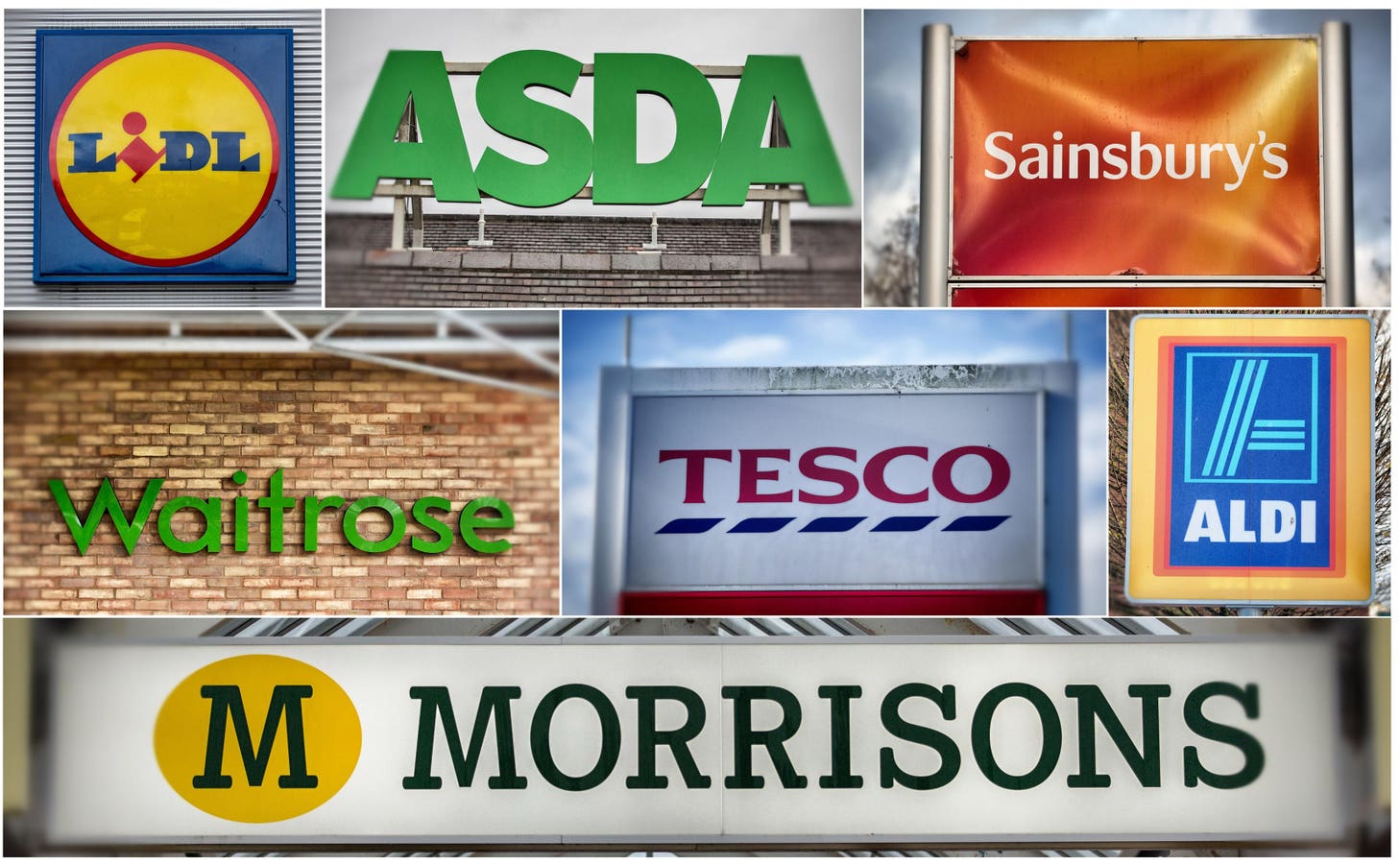The two retailers arguably best at exploiting the squeeze on consumer wallets are ending the year as they started it, with an almost never ending pledge to open more stores.
Don’t tell Aldi or Lidl that the world has moved online, the German discounters have both unveiled plans for one of their most important markets that will put the major British grocers on alert.
And while Aldi still has a significantly higher market share than its rival, Lidl is playing catch-up.
Aldi has pledged to invest nearly $830 million across its U.K. store network next year, with the retailer targeting about 30 new store openings in total in 2025. The move forms part of the retailer’s long-term target of 1,500 stores across the U.K., with the supermarket investing $1.02 billion in expanding its U.K. footprint in 2024 alone.
The latest plans will see it launch a further eight stores at the start of 2025 followed by around 40 more in its next financial year.
The German discounter said this includes the development of new stores in Fulham Broadway in London, Billericay in Essex, and Cheadle in Stoke-on-Trent and these new openings are part of Aldi’s annual investment to accelerate its expansion across the country.
Lidl Revs Up Expansion
Aldi said in announcing the latest investments: “The rate of investment in 2025 continues from an equally busy new store opening programme in 2024”, with the retailer opening at new sites such as Totton in Hampshire, Cribbs Causeway in Bristol and Pwllheli in Gwynedd over recent weeks.
“The demand for our unbeatable prices is now at an all-time high, which gives us the confidence to continue investing in Britain to provide greater access to our award-winning products at the lowest prices,” Aldi U.K. and Ireland CEO Giles Hurley said.
“We recognize that there are still areas without an Aldi store, so our expansion plans for 2025 are designed to address some of these gaps as we work towards our long-term goal of 1,500 U.K. stores.”
Meanwhile, rival Lidl opened a number of new stores earlier this month as part of its own expansion plans, which will see it launch a further eight stores at the start of 2025 followed by around 40 more in its next financial year.
Lidl’s country chief development officer Richard Taylor said of the latest spate of store openings: “As we head into December, opening six stores in a single day highlights the incredible momentum behind our expansion in our 30th year. This milestone reflects our unwavering commitment to delivering affordable, high-quality products to more households across the country, especially at a time of year when value matters most.”
Discount Grocery Share
In the most recent figures, Kantar revealed that online grocer Ocado topped the growth table, boosting its sales by 9.5% over the 12 weeks to Nov. 3. With sales up by 7.4%, Lidl was the fastest growing retailer with a bricks-and-mortar presence for, incredibly, the 15th period in a row, continuing this run into a second year. It secured 326,000 additional shoppers in the period, more than any other retailer, and saw particularly strong fresh produce sales growth at 22%.
The two largest U.K. supermarkets also outperformed the wider market. With sales up across all its store formats and online, Tesco’s sales rose by 4.6% taking it to 27.9% of the market, up 0.6 percentage points on last year. Spending through the tills at Sainsbury’s climbed 4.4%, making its overall share 15.5%.
Asda’s hold of the market is now 12.5%, Morrison’s sales grew by 2.4%, outpacing the market average for the first time since June 2021. Its share of take-home sales remains at 8.6%. Aldi held its share of the market steady year on year at 10.4%.
Co-op and Waitrose’s shares sit at 5.7% and 4.6% respectively. Iceland now makes up 2.2% of the market, the same proportion as a year ago.
Read the full article here





